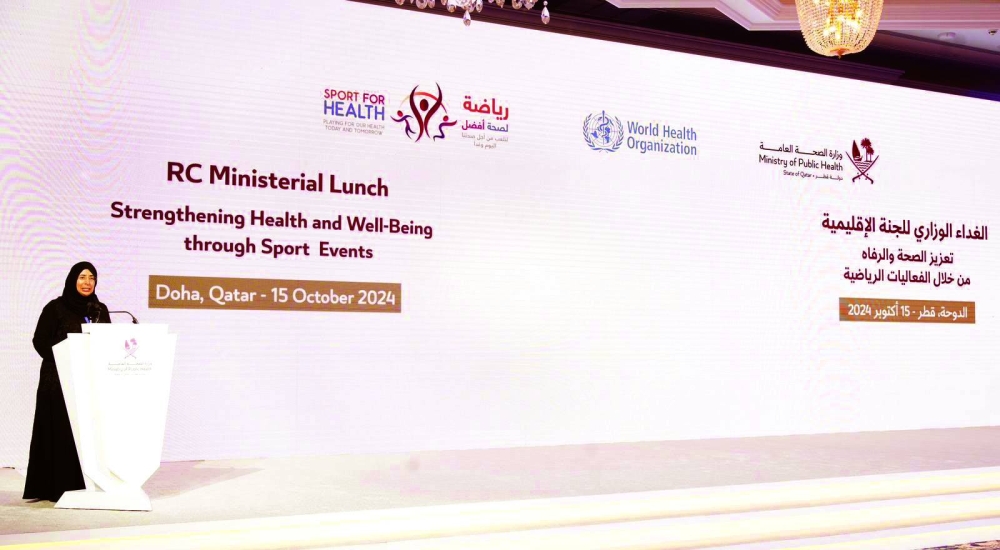Qatar and the World Health Organisation (WHO) launched a new, detailed report Tuesday highlighting the lessons learned from the “Sport for Health” partnership, initiated in 2021 in collaboration with the Ministry of Public Health (MoPH), the WHO, FIFA, and the Supreme Committee for Delivery & Legacy.
The report provides many recommendations for organising mega global sporting events that prioritise health and safety by drawing on the successful experience of the FIFA World Cup Qatar 2022.
The report, titled “Changing the Game: Strengthening Health and Well-Being Through Sport Events”, was launched during an event organised by Qatar, titled “Strengthening Health and Well-Being Through Sports Events”. The launch event was held on the sidelines of the 71st session of the WHO’s Eastern Mediterranean Regional Committee.
HE Dr Hanan Mohamed al-Kuwari, Minister of Public Health, emphasised, “The collaboration between Qatar, the WHO, and FIFA can inspire organisers of major global sporting events to integrate health into the planning and execution of their events.”
She stressed: “The Sport for Health model reflects a commitment to harness the transformative power of mega-sports events to create lasting improvements in public health and well-being,” adding: “This report details our collaborative effort – a new model that unites nations, international organisations, and sports federations in a shared mission.”
Dr Tedros Adhanom Ghebreyesus, director-general of the World Health Organisation, stated: “The new report demonstrated the power of sports—and sporting events—to empower people to lead healthier lives, physically and mentally.”
Mutaz Barshim, Qatari Olympic high jump champion, underscored how “sport has the unparalleled ability to inspire, unite, and transform lives. By promoting both physical and mental well-being during the FIFA World Cup Qatar 2022, the Sport for Health initiative has shown how sport can lead to healthier lives for everyone, setting a valuable model for future global events.”
The report reviewed the three-year Sport for Health project and, based on the findings, put forward a series of key recommendations, including the importance of: developing memorandums of understanding with the private health sector, such as hospitals and healthcare providers, ahead of major events to lay the foundation for effective collaboration; involving all relevant authorities and bodies in decision-making, planning and implementation; developing and reviewing comprehensive plans and procedures to enhance safety at mega-sports events, followed by testing them through extensive training programmes and major incident drills; and establishing mechanisms to strengthen compliance with public health and social measures, as well as other established public health protocols.
The report captures the learning process and outcomes of the Sport for Health partnership with the aim of presenting the Healthy FIFA World Cup Qatar 2022 as a model for future sporting events worldwide.

HE Dr Hanan Mohamed al- Kuwari, Minister of Public Health speaks at the event.
